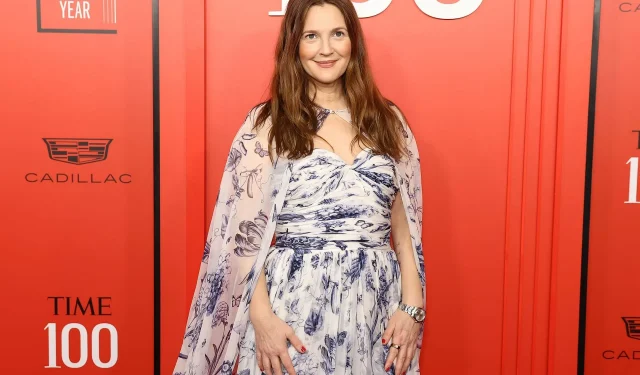
Demi Lovato and Drew Barrymore recently opened up about their difficult journeys with childhood fame and substance abuse. In an honest discussion featured in Lovato’s documentary Child Star, both former child actors shared their experiences of being introduced to drugs and alcohol at a young age.
Lovato, who identifies with she/they pronouns, and Drew Barrymore, who began her acting career as an infant, reflected on their early struggles with addiction, revealing painful memories of being exposed to substances as children.
In Child Star, Lovato asked Barrymore, “How old were you when you were first given something?”To which Barrymore responded,
“I used to get high with my mom’s friend at like 10. And I thought she was so cool, and she would give weed to me and her son.”
Lovato added, “It’s hard to not blame someone else when you’re ten years old,”highlighting how early exposure to drugs complicates issues of personal accountability.
Drew Barrymore’s Reflection on Accountability Amidst Child Stars’ Struggles with Substance Use
Despite her traumatic past, Drew Barrymore emphasized her accountability for her actions.
Reflecting on her past, she stated, “Those were all my actions, those were my reactions. That was my coping mechanism. I’m very accountable, I don’t blame other people.”
She acknowledged her perspective on childhood has shifted dramatically since becoming a mother, sharing,
“Having a 10-year-old daughter now, I just, it’s unfathomable. But that’s just how I grew up.”
Lovato echoed similar sentiments, noting the challenge of breaking the cycle of addiction when surrounded by others who are part of the problem. These insights shed light on the daunting challenges that child actors face, often alone and without guidance from adults.
Child Star, co-directed by Lovato and Nicola Marsh, explores the darker side of growing up in Hollywood. It features real-life accounts from various celebrities, including Christina Ricci, Kenan Thompson, JoJo Siwa, Alyson Stoner, and Raven-Symoné.
The young actors interviewed expressed how they were improperly influenced by celebrities and producers at a young age, with substances being introduced prematurely. Ricci, for example, shared her battle with addiction after landing her first role at 10, stating,
“I immediately went right to drugs and alcohol in my teens… I don’t remember feeling like there was any other way to be happy.”
Alyson Stoner likewise recounted her struggles with substance abuse during her Disney Channel era.
Demi Lovato, who rose to fame through Disney Channel’s Camp Rock, has been vocal about their struggles with addiction and mental health, which intensified due to the pressures of early stardom. Lovato spoke about the difficulty of separating their self-worth from their achievements, noting,
“I looked at my success as my self-worth. I had a really hard time differentiating the two.”
This reliance on external validation, paired with a demanding work schedule, contributed to Lovato’s well-documented battles with sobriety.
Drew Barrymore has also been open about the enduring repercussions of childhood fame. Growing up in a prominent family, she began drinking alcohol at the age of 9, which led to rehabilitation by age 13. Barrymore describes herself as a “walking cautionary tale,”having witnessed her family members struggle with addiction. Today, she views her sobriety as a means of honoring her family’s legacy.
Child Star not only chronicles the heartbreaking stories of addiction but also emphasizes the crucial need for better protection for young actors. The documentary concludes on a hopeful note, featuring Lovato discussing the importance of prioritizing well-being, family, and friends over the allure of fame.
The film also highlights the Looking Ahead program, which aims to provide legal protections for children in the entertainment industry.
As more former child stars share their experiences, documentaries like Child Star serve as a reminder of the urgent need for reform in how child actors are treated. For Drew Barrymore and Lovato, telling their stories is part of a broader discussion on recovery, accountability, and safeguarding the next generation of rising stars.




Leave a Reply